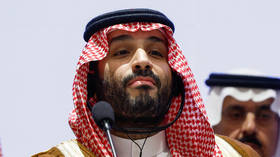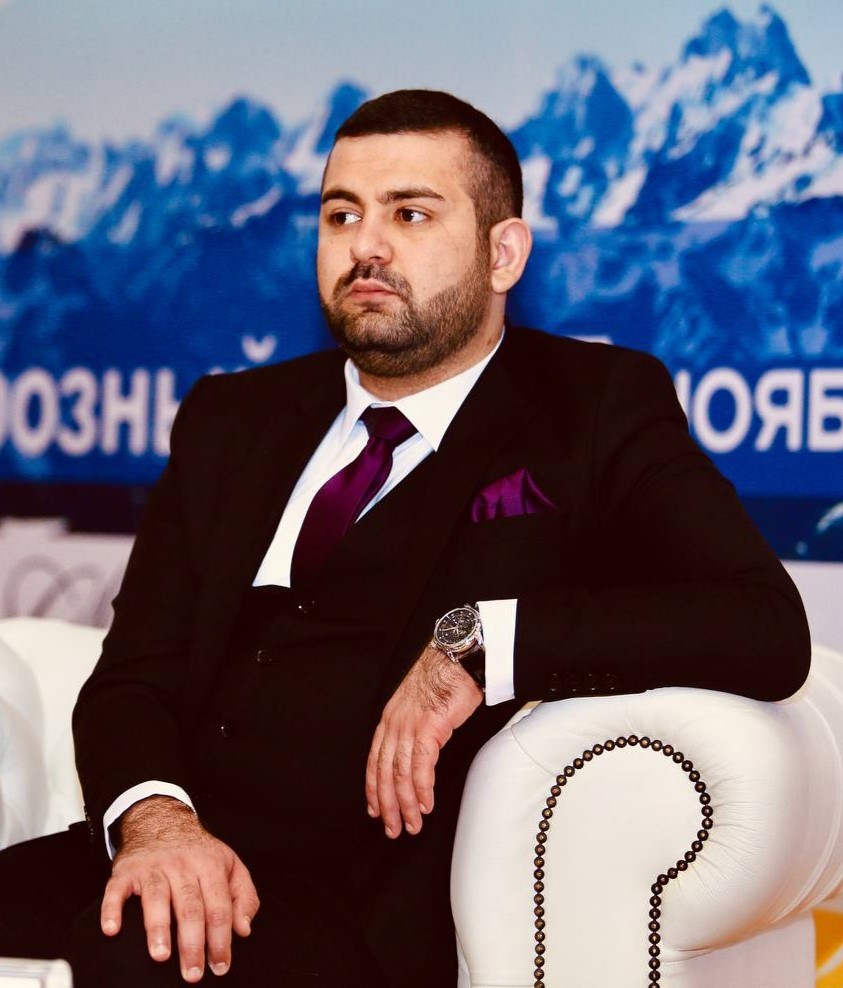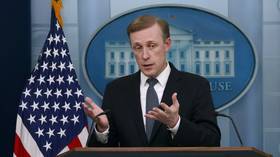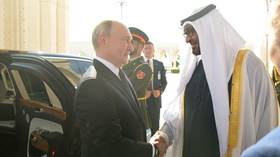Royal bounty: Who would want to kill the Saudi Crown Prince, and why?

Recently, several media outlets reported an attack on the convoy of Saudi Crown Prince Mohammed bin Salman (MBS). However, these claims appear to have been false.
The video and information about burning cars in Riyadh emerged in a post by X (formerly Twitter) user Winter Intel, whose account analysis indicates an unreliable source. Later, the General Directorate of Civil Defense of Saudi Arabia reported an accident involving two cars, one of which had caught fire. The agency confirmed that there were no casualties.
Many Saudi journalists also debunked the news of the attack, calling it fake. Despite the widespread presence of fake news in the modern information space, questions remain about who could have an interest in spreading such rumors, and why. Could there indeed be an assassination attempt on MBS, and what might the reasons be?
Vision 2030: A great reformer for a nation of the future
Mohammed bin Salman, the Crown Prince of Saudi Arabia, initiated comprehensive reforms in the kingdom from the moment he assumed key positions of power. His ambitious reform program “Vision 2030” reflects a strategic plan to transform various aspects of the country’s economy, society, and culture. The primary economic goal is to reduce Saudi Arabia’s dependence on oil, and MBS has taken several critical steps toward this objective.
Sectors like tourism, entertainment, information technology, healthcare, industry, and mining are being developed. Saudi Arabia aims to increase the share of the non-oil sector in GDP from 16% to 50%. Privatization of state-owned enterprises is another vital element. The process of partial privatization of Saudi Aramco, the state oil company, has begun, as well as privatization of other public enterprises in various sectors.
At the same time, the Public Investment Fund (PIF), one of the largest sovereign funds in the world, with assets exceeding $620 billion, was established. The fund finances many strategic investments within and beyond the country, including the major project to build the futuristic NEOM megacity on the Red Sea coast. To stimulate the private sector, MBS has paid particular attention to developing small and medium-sized businesses, creating favorable conditions for entrepreneurship and foreign investment, including lifting restrictions on foreign ownership of businesses in the country.
MBS has also brought significant changes to Saudi Arabian social life. The most critical step was expanding women’s rights: they can now drive, attend sports stadiums, start their own businesses, and travel without a male guardian’s permission. Mandatory gender segregation at public events has also been abolished. Additionally, the establishment of the General Entertainment Authority has led to the emergence of concerts, cinemas, festivals, and other forms of entertainment previously strictly prohibited.
Opening Saudi Arabia to foreign tourists is another key social reform. Thanks to the introduction of tourist visas, the country has for the first time become accessible to visitors not involved in a pilgrimage. In the cultural sphere, MBS is promoting development of arts and culture. The General Culture Authority was created, launching initiatives to support local artists and cultural projects. Special attention is also given to preserving Saudi Arabia’s cultural heritage, restoring historical sites and opening them to visitors.
Political reforms have also become an essential part of “Vision 2030.” In November 2017, MBS launched an anti-corruption campaign, arresting dozens of princes and businessmen. This campaign allowed significant sums to be returned to the state treasury, which were then used to finance key reforms. The government service reform introduced new standards for civil servants and improved the efficiency of the government apparatus.
Despite the complexity and scale of the changes, MBS continues to advance Vision 2030, striving to make Saudi Arabia more progressive, modern, and sustainable in the future.
“Challenges of 2030”: What problems does MBS face?
MBS’ reforms are already changing the face of Saudi Arabia, but they have sparked strong reactions, both domestically and internationally. Vision 2030 is an ambitious plan to transform Saudi Arabia but the implementation of the program faces significant challenges.
Despite notable achievements, MBS’ reforms have drawn criticism from both inside the country and abroad. The anti-corruption campaign was accompanied by harsh repression of dissent. The November 2017 move on princes and businessmen returned significant sums to the state. However, this step by MBS was also seen as an attempt to eliminate political opponents, consolidate his power, and suppress dissent.
The arrests of activists and journalists have restricted freedom of speech and political participation, provoking strong criticism from international human-rights organizations. The murder of journalist Jamal Khashoggi in the Saudi consulate in Istanbul in 2018 cemented a negative image of MBS in the eyes of the global community. This crime became a symbol of a brutal suppression of opposition, and several Western countries imposed sanctions on Saudi officials suspected of involvement in the killing.
The UN and international human rights organizations like Amnesty International and Human Rights Watch have raised concerns and leveled criticism at MBS for the arrests of journalists, bloggers and activists, including female activists fighting for women’s rights such as Loujain al-Hathloul. Strict laws on insulting religion and the state, mistreatment of prisoners, and the kingdom’s use of the death penalty continue to attract global attention.
Another source of international criticism is the war in Yemen. Saudi Arabia, led by MBS, headed a coalition against the Houthis in 2015. The conflict has led to massive civilian casualties and a humanitarian crisis in Yemen. MBS was accused of waging a war that disproportionately targeted civilian infrastructure, and of blockading Yemen, which led to widespread famine.
Sharp economic and social changes have also triggered resistance within Saudi Arabia. Despite efforts to develop non-oil sectors, oil remains a significant source of the country’s revenue. The recent sharp decline in global oil prices has exposed the vulnerability of the kingdom’s economy. Vision 2030 aims to reduce Saudi Arabia’s dependence on oil revenue, but economic diversification has proven to be a challenging task.
The reforms have faced the most resistance from religious and conservative circles. Most significantly, expanding women’s rights was met with fierce criticism from the religious establishment and conservative parts of the population, who see such reforms as a threat to traditional Islamic values.
These problems are not without historical parallels to the reforms of King Faisal, who also faced challenges in modernizing Saudi Arabia in the mid-20th century. King Faisal, the uncle of MBS, also carried out reforms that changed Saudi Arabia. He sought to reduce the country’s dependence on oil by developing infrastructure and non-oil sectors of the economy. In the 1960s and 1970s, he introduced a mandatory education system for girls despite conservative opposition, and sought a more modern, open Saudi Arabia. However, he was shot and killed by his nephew, although the real reasons behind this act remain unclear.
However, there are significant differences between the reforms of MBS and King Faisal. King Faisal acted cautiously and gradually, avoiding abrupt changes, while MBS aims for rapid results, often causing social upheaval. King Faisal was more diplomatic in his approach to opponents, whereas MBS employs harsh methods to suppress adversaries of reform. The anti-corruption campaign and its mass arrests have become part of MBS’ strategy to consolidate power, which critics see as authoritarian.
Rising external tensions
The United States remains Saudi Arabia’s primary strategic partner, but relations between the two countries have often been strained due to MBS’ policies. After the Khashoggi murder, the US Congress and the Biden administration sharply criticized the crown prince. The CIA linked this crime directly to MBS, which led to sanctions against several Saudi officials and complicated relations with Washington. The US also expressed concern over the war in Yemen. President Biden announced the end of US support for the Saudi campaign and reviewed arms supplies. An additional source of tension was the October 2022 OPEC+ decision led by Saudi Arabia to cut oil production, which raised energy prices and angered the Biden administration.
Saudi Arabia and Iran have traditionally been regional rivals, supporting opposing sides in conflicts in Yemen, Syria, and Lebanon while also competing for influence in the Persian Gulf. The severing of their diplomatic relations in 2016 and mutual accusations of destabilizing the region heightened enmity between Riyadh and Tehran. Saudi Arabia criticizes Iran’s nuclear program and supports sanctions against Tehran, fearing the possible development of Iranian nuclear weapons. However, in March 2023, with China’s help, the two nations agreed to restore diplomatic relations, opening a new chapter in the Riyadh-Tehran dialogue and promising a potential reduction in regional tensions, though the fundamental causes of competition and rivalry remain.
The United Arab Emirates (UAE) has traditionally been a close partner of Saudi Arabia in the region, but the ambitions of its leader, Mohammed bin Zayed (MBZ), create friction. The UAE seeks to become a regional economic hub, which creates competition between Dubai and Riyadh. Saudi Arabia requires international companies to move their headquarters to Riyadh to secure contracts in the kingdom, which displeases Dubai. In Yemen, Saudi Arabia and the UAE fight the Houthis together but pursue different goals: the UAE supports the Southern Transitional Council (STC), which seeks southern Yemen’s independence, while Saudi Arabia advocates a unified Yemen. In relations with Israel, the UAE normalized ties through the Abraham Accords in 2020, promoting regional cooperation, while Saudi Arabia remains hesitant to follow suit due to concerns over internal backlash.
Saudi Arabia and Israel do not have official diplomatic relations, but against the backdrop of common opposition to Iran, both states are cautiously moving towards rapprochement. Tehran remains the main adversary for both countries, providing a basis for informal security cooperation. Israel offers Saudi Arabia support in countering the Iranian threat. In the framework of the Abraham Accords, several Arab countries have normalized relations with Israel. Saudi Arabia has yet to grant official recognition, but negotiations were actively ongoing until the conflict in Gaza erupted in October 2023
Relations between Saudi Arabia and Türkiye improved after a period of tension over the Khashoggi murder. Türkiye seeks to strengthen its influence in the Middle East, competing with Saudi Arabia. Earlier, Ankara had strongly criticized Riyadh’s actions in Yemen and its blockade of Qatar. In 2022, MBS visited Turkey, and the two countries agreed to improve relations. This demonstrates MBS’s pragmatic approach to cooperation, even with those who have criticized him in the past.
In June 2017, Saudi Arabia, led by the UAE, Egypt, and Bahrain, imposed a blockade on Qatar, accusing it of supporting terrorism and of maintaining close ties with Iran. This created deep regional divisions and strengthened Türkiye’s and Iran’s influence over Qatar. However, in January 2021, Riyadh and Doha signed an agreement to restore relations and ended the blockade. Nevertheless, mutual distrust remains.
In the changing global world, Saudi Arabia faces difficulties as MBS seeks to pursue a sovereign and diversified foreign policy. Western criticism often stems not only from human-rights issues and the crown prince’s harsh governance methods but also from his desire to develop relations with Russia and China. Riyadh sees China as a strategic partner in trade and investment. Saudi Arabia and Russia cooperate within OPEC+ on oil-price regulation. Riyadh maintains contacts with Moscow despite Western isolation of Russia due to the war in Ukraine.
MBS’ domestic and foreign policies, despite complicated relations with many countries and forces, reflects his desire to strengthen Saudi Arabia’s position as a regional leader and to reshape the kingdom. However, his harsh methods and uncompromising struggle against the opposition have intensified criticism from global and regional players, creating new challenges for the crown prince. Therefore, potential assassination attempts on the de-facto leader of modern Saudi Arabia may not be fake in the future.
His reforms are opening a new chapter in Saudi Arabian history, but they also highlight the difficulty of modernizing the kingdom amidst contradictions and resistance from various segments of society. The Vision 2030 program remains an ambitious attempt to make the kingdom more progressive, modern, and sustainable in the future, despite the many challenges on this path. After all, not everyone is interested in a strong and sovereign Saudi Arabia.
















